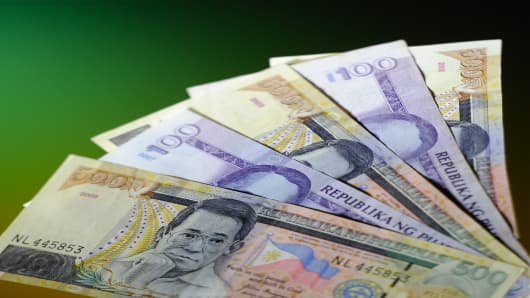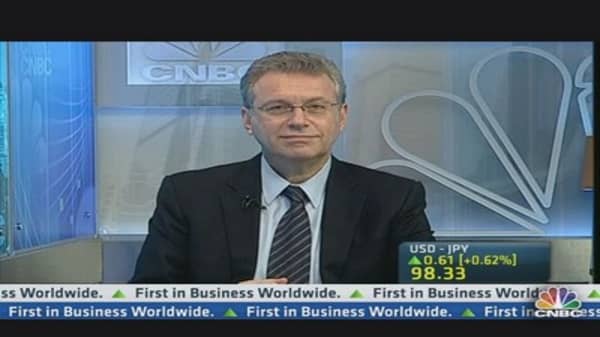Emerging market currencies have been taking a beating since the U.S. Federal Reserve indicated that it could taper its massive bond buying program later this year, but there is one currency that has stood up.
According to BNP Paribas, the Philippine peso stands out among other beleaguered emerging market currencies as the least susceptible to the impacts of the "tapering tantrum."
"The peso stands out as least vulnerable," said BNP Paribas. "The Philippines' current account surplus is underpinned by remittances, not commodity exports to China.... Foreign portfolio ownership is low and the private sector is not heavily dependent on external credit."
(Read More: Fitch Upgrade o f Philippinesa 'Seal of Good Housekeeping')
This populous Southeast Asian economy's which saw its economy expand 7.8 percent quarter on quarter in the first quarter of 2013 has a distinct advantage over some of its bigger regional peers like India and Indonesia which have big current account deficits and are seeing slowing growth.
Fears over Fed scaling back on its $85 billion monthly quantitative easing program have prompted steep losses across emerging market equities and bonds in recent weeks, leading in turn to a fall in regional currencies.
This has led the Indian rupee to fall close to 6 percent since late May to an all-time low against the U.S. dollar, while the Indonesian rupiah has this year touched lows not seen since September 2009.
(Read More:Rating Agencies 'Behind the Curve' on Philippines)





